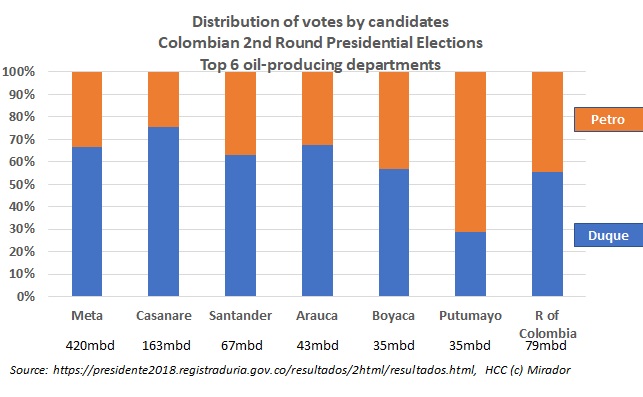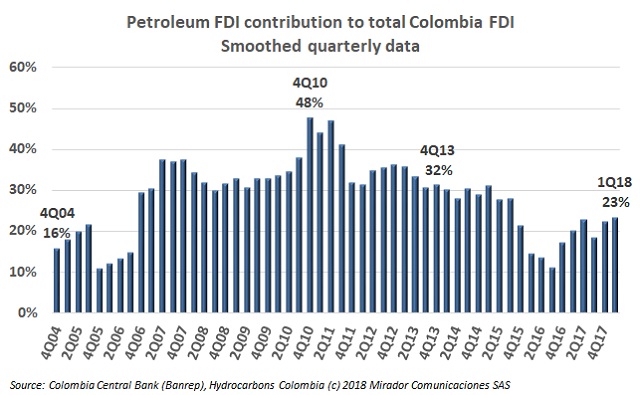Legal insecurity has increased in recent years in Colombia due to lack of clarity in the rules of the game. The Departmental Comptroller’s Office of Cundinamarca ruled on environmental licenses in mining matters.

The second round of Colombia’s Presidential Election is over and, as we reported in our newsletter today, Iván Duque will be the country’s next President. See our analysis article for what that will mean for the oil and gas industry. As before, we wanted to see how the top oil-producing departments behaved.
As the polls predicted, the Centro Democrático’s candidate, Iván Duque, won the Colombian Presidential elections and will be sworn into office on August 7th. Investors breathed a collective sigh of relief. Had his opponent, Gustavo Petro, won, uncertainty would have increased considerably.
The National Hydrocarbons Agency (ANH) announced a new regulatory framework that would make Colombia’s oil contracts one of the most competitive in the region.
The Colombian Association of Petroleum Engineers (Acipet) spoke about its concern regarding the treatment that some of Ecopetrol (NYSE: EC) engineers received after the incident in La Lizama.
The country’s Green Growth Commission, headed by economist Hernando José Gómez, announced its goals to achieve a ‘green economy’ in 2030.
Colombia will elect a new president among the candidates Iván Duque and Gustavo Petro next Sunday and their proposals for the oil and mining sectors are polar opposites. The newspaper El Tiempo made a summary of the proposals and the positions of both candidates on these issues.
Colombian economic thinktank, Fedesarrollo, recent published a slide deck with a strong condemnation of the way prior consultation takes place. It calls for normalization of procedures and clarification of responsibilities between different levels of government.
The Ministry of Mines and Energy (MinMinas) spoke about an issue that is not often discussed: gender equality in the industry.

Colombia’s Central Bank (Banrep) released 1Q18 Foreign Direct Investment (FDI) figures for the country. This increased in the sector compared to same period last year, but dropped compared to 4Q17. Total FDI decreased in Colombia.